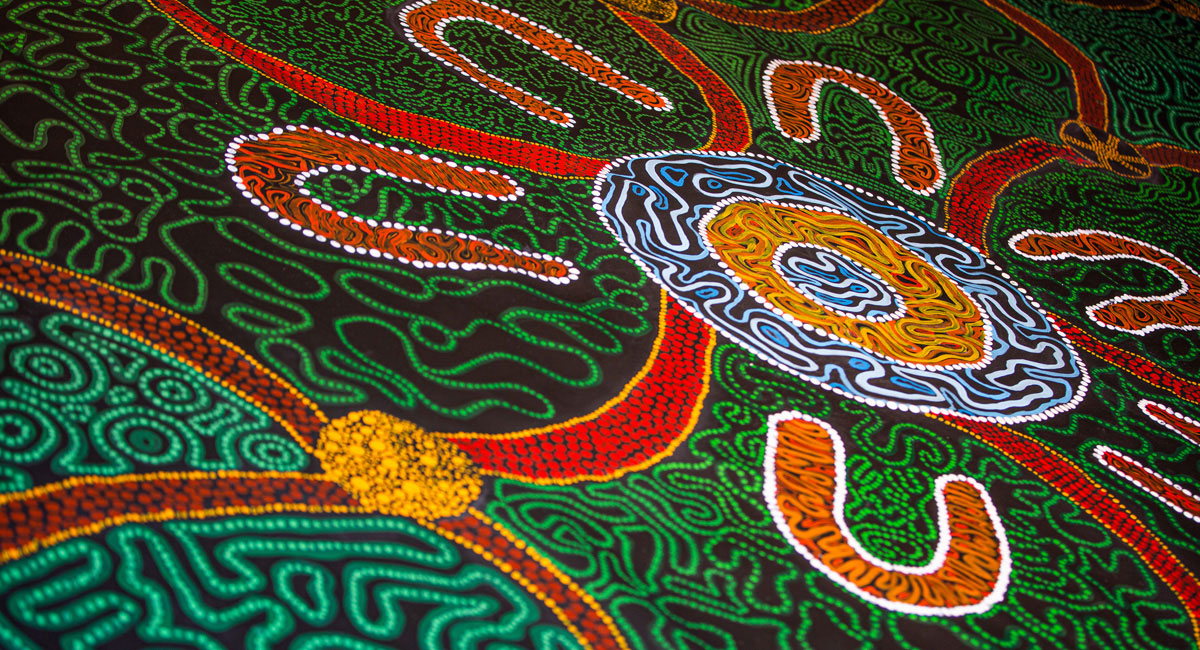reconciliation action plan
Chevron Australia acknowledges the Traditional Owners of the land we work on – the Thalanyji peoples, the Whadjuk peoples, and the Mardudhunera peoples – and we pay our respect to Elders past and present.
We recognise Aboriginal and Torres Strait Islander peoples' continued connection to land, waters and community and are committed to walking together to build a brighter future for all Australians.

We are proud to have launched our 2025 – 2027 Reconciliation Action Plan (RAP), which sets out a new framework for our contribution to reconciliation.
The RAP outlines our commitment to reconciliation and actions we will take to strengthen our relationships with Aboriginal and Torres Strait Islander peoples, ensuring they benefit from the social and economic opportunities that our operations across Australia generate.
Our efforts will be focused on learning from and respecting the cultures of the Traditional Owners of the areas where we operate, creating opportunities for Aboriginal and Torres Strait Islander peoples to participate meaningfully in our workforce, and improving the governance of our commitments.
We’re going to continue to collaborate with Aboriginal and Torres Strait Islander peoples and communities to deepen long-term trusting and beneficial relationships focused on inclusion, transparency, respect and accountability.
Throughout the development of Gumap - One The Esplanade, our new headquarters at Elizabeth Quay, on Whadjuk Noongar Country, we partnered with the Cultural Architects – leaders within the Whadjuk Noongar community – to implement cultural safety training for everyone who worked on the site and ensure Aboriginal cultures were respected and reflected throughout our workplace. We hope to strengthen our relationship and replicate this in other areas of our operations.
At Chevron we have an inclusive work environment that values the uniqueness and diversity of individual talents, experiences and ideas.
We have recognised the need to broaden representation from across the business to provide feedback, decision making and delivery of RAP commitments and we have extended our Aboriginal Affairs Steering Committee and RAP Working Group to include Aboriginal and non-Aboriginal representatives from diverse areas of our business at all levels.
This is an important step to align on and activate our RAP in a sustainable and impactful way as we focus on shared goals, achieving outcomes and incorporating past learnings in all activities.
It’s important we understand the progress of our commitments under the RAP, and with a goal of driving tangible change, we have implemented an Outcomes Measurement Framework. This Framework will measure our RAP deliverables and actions with clear outcomes-based indicators.
We’ve also implemented Weavr, a formal tracking and reporting tool developed by an Aboriginal and Torres Strait Islander business, to help embed the RAP’s actions across our organisation, increase visibility and transparency, and promote collaboration for reconciliation.
When reflecting on our reconciliation journey since the launch of our first RAP in 2019 we can see the progress we have made but acknowledge we have some way to go. We can and will do better.
We look forward to working with our Aboriginal and Torres Strait Islander partners to create meaningful change and continue to advance reconciliation in Australia.